






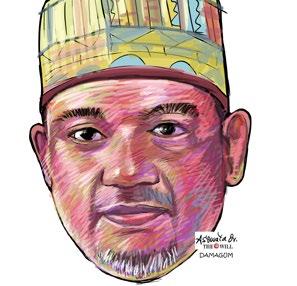
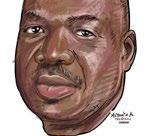
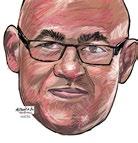

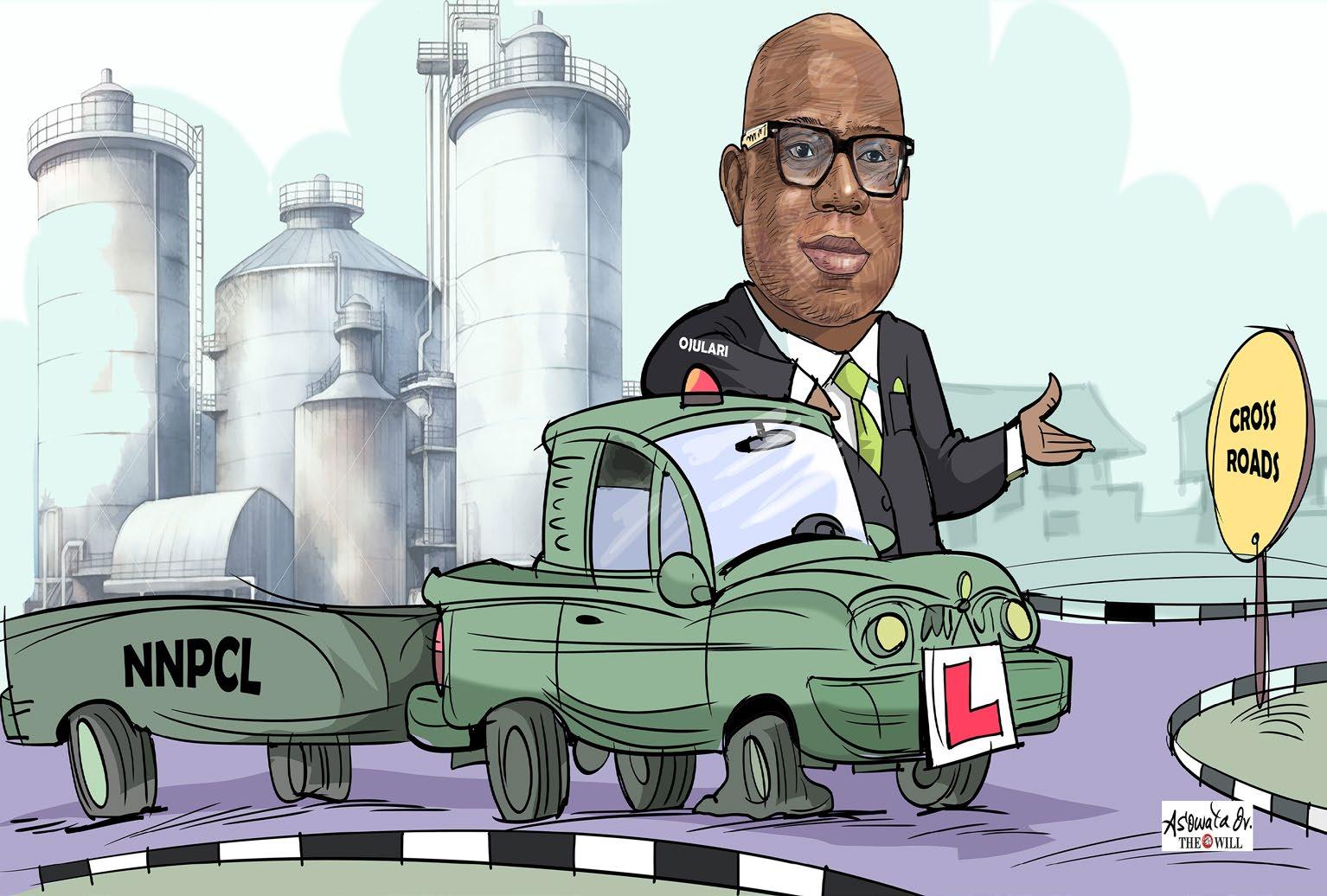



















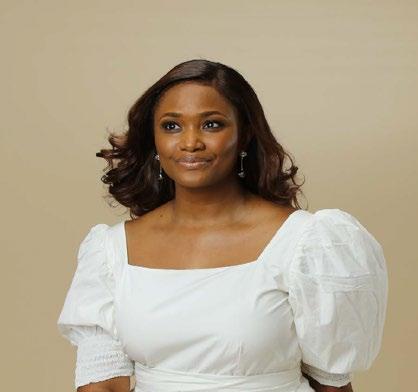





Emmanuel Ikubese wears multiple creative hats: he is an actor, director and a model. While they all have their different levels of difficulty, he says the most challenging is being a director because he has to seek out funding, build from scratch and tell his own stories. He also says that preparing himself not just to be a player in the industry, but as someone who also shapes what the industry will look like in the next five to ten years, requires a lot of work and that in itself is challenging. As for whether there are times when he wondered if he was on the right path, Ikubese admits that everyone has those times when they question their actions, wondering whether they are doing the right thing. For him, that’s where his faith in God comes in and his belief that he was called to do what he is doing. He makes a profound statement: “Just because you are called to do something doesn’t mean there won’t be resistance.” I find this statement to be very true.
Read Emmanuel Ikubese’s story on pages 8 to 10 of this issue. While lotions or moisturisers help to keep the skin hydrated and soft, what happens when you run out of your usual product? In this week’s beauty page, we showcase alternatives to body lotions. Scroll to page 12 for this.
Downtown Confidential tells the story of someone who was caught in the act. I won’t give out too much about the story. Let’s just say it was very embarrassing. Scroll to page 15 to read this story.
As always, our movie review page reviews the latest movies. There is also a playlist for you to download some music. Let us know what you think. Until next week, enjoy your read.







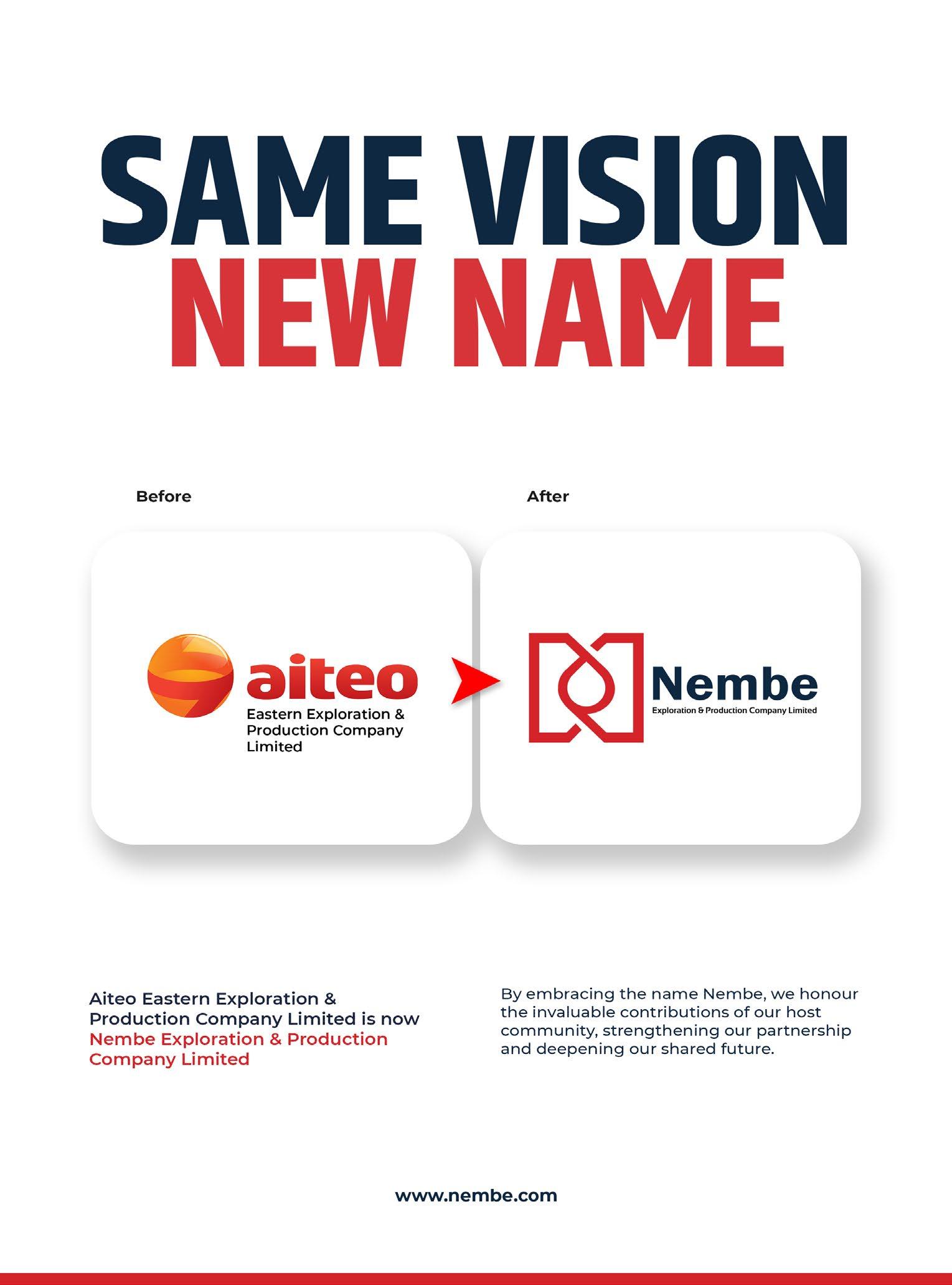


SUNDAY, AUGUST 03, 2025
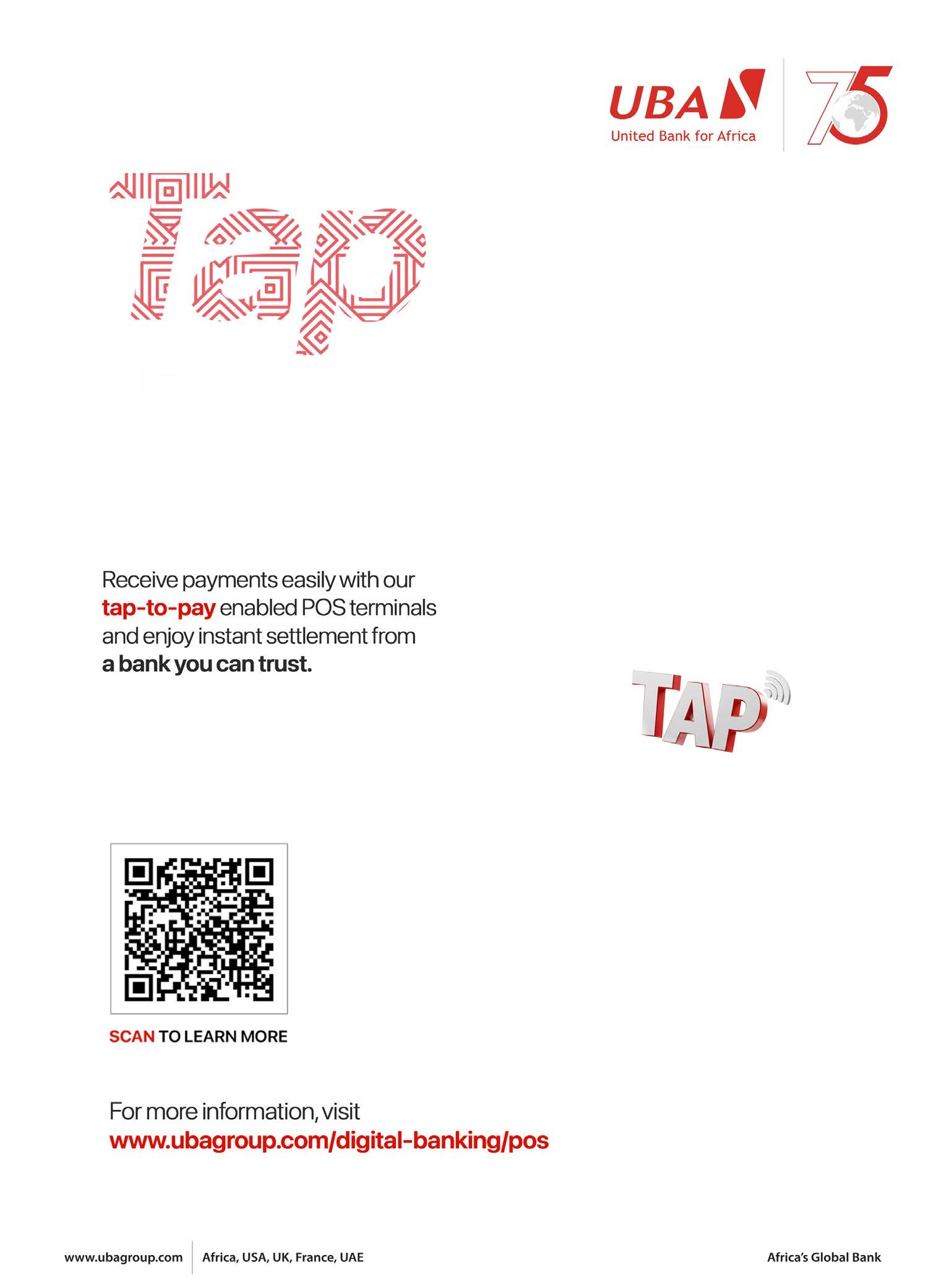



BY SAM DIALA
The recent statement by the Group Chief Executive Officer (GCEO) of the Nigerian National Petroleum Company Limited (NNPCL), Engr. Bashir Bayo Ojulari, that the state-owned refineries would not be sold, was most disappointing. This is because the NNPCL GCEO had earlier indicated that the facilities would be sold to terminate the unending repairs constituting a drain to the economy.
In an interview with Bloomberg at the 9th OPEC International Seminar in Vienna, Austria, on July 11, 2025, Ojulari said that a strategic review of the NNPCL’s refinery operations was underway and expected to be concluded before the end of the year which could precede the sale or concessioning of the refineries.
what we’re saying is that sale is not out of the question.
“All the options are on the table, to be frank, but that decision will be based on the outcome of the reviews we’re doing now.”
However, at a company-wide town hall meeting held in Abuja, later in July, the NNPCL GCEO announced that the refineries would no longer be sold, reaffirming the company’s commitment to completing high-graded rehabilitation and retention of the plant.
“So, we’re reviewing all our refinery strategies now. We hope that before the end of the year we’ll be able to conclude the review. That review may lead to us doing things slightly differently,” he said.
When asked if that could include putting the refineries up for sale, Ojulari said, “But
Mr Ojulari explained that his new position was not a shift, but informed by ongoing detailed technical and financial reviews of the Port Harcourt, Kaduna and Warri refineries, noting that the ongoing review indicates that the earlier decision to operate the Port Harcourt refinery, prior to the full completion of its rehabilitation, was ill-informed and sub-commercial.
While progress is being made on all three facilities, he said the emerging outlook calls for more advanced technical partnerships to complete and high-grade the rehabilitation of the Port Harcourt refinery, thus selling them is






refineries — is now petrol, the commodity that had consumed the bulk of the nation’s foreign exchange earnings through importation.
“The refineries that we bought before, which were owned by Nigeria, were doing about 22 percent of PMS. We bought the refineries in January 2007. Then we had to return them to the government because there was a change of government.
“The managing director at that time convinced Yar’Adua that the refineries would work.
“They said they just gave them to us as a parting gift or something. As of today, they have spent about $18 billion on those refineries and they are still not working. I don’t think so and I doubt very much if they will work,” he said.
Dangote emphasised that the turnaround maintenance of the refineries is “like you trying to modernise a car that was built 40 years ago, when technology and everything have changed.
“Even if you change the engine, the body will not be able to take the shock of that new technology engine,” he said.
Dangote’s claim resonated about two years after Reuters had published a similar report on May 31, 2023, to the effect that Nigeria spent more than 11.35 trillion naira ($25 billion) on fixing the country’s three moribund refineries in the previous 10 years. It quoted the outgoing parliament in a report, calling for a forensic audit of the matter.
Reuters noted that despite the huge sums of money spent to rehabilitate the refineries, they were producing at less than 30 percent capacity, quoting the parliament - a situation that had kept the country reliant on fuel imports, which it subsidies to keep prices low.
The government had made empty promises through the NNPC that the refineries would resume production in no distant time. Into the era of empty promises to fix the refineries, the Senate on October 24, 2023, constituted an ad-hoc committee to investigate all contracts estimated at over N11.35 trillion awarded for the rehabilitation of the four moribund refineries in the country.
This followed a motion brought by Senator Sunday Karimu on the unending repairs of the nation’s refineries despite the huge resources invested in fixing them.
In graphic details, the lawmaker said, “Despite the moribund state of the four refineries, the operating costs of these refineries between 2010 and 2020 is estimated at N4.8 trillion naira. The refineries are estimated to make a cumulative loss of N1.64 trillion, within four years.”
He added, “We are concerned that the Federal Government of Nigeria has carried out rehabilitation projects in Port Harcourt Refinery Company (PHRC) over a period of seven years from 2013-2019 at an estimated cost of N12,161,237,811.61.
Maintenance (O&M) companies to bid for the Warri and Kaduna refineries (while repairs of the Port Harcourt refinery were in progress).

“In addition, on 18th March, 2021, a rehabilitation contract was executed between NNPC/PHRC and Tenenimont SPA at a Lump Sum of $1,397,000,000.00, about N75 billion naira amidst global public criticism, no result has been achieved.
“Phase 1 of the Project is expected to be completed in 28 Months after the contract, Phase 2 within 24 months and Phase 3 within 44 months of execution. Despite this, the Port Harcourt Refinery remains a money pit.
“Going by projections and representations from NNPCL the renovation works ought to be completed and operations of the Refinery commenced by June 2023.”
Senator Karimu expressed further concern that in a bid to revitalise the Warri Refinery, the Federal Government injected huge public funds into revamping the facility to the tune of over N28, 219, 110, 067.10 between 2014 and 2019.
The Senate, consequently, constituted a 7-member ad-hoc committee to investigate the matter and to submit their findings to the upper legislative chamber within four weeks –November 21, 2023. No report was submitted.
However, in a dramatic turn of events, the NNPCL on August 30, 2024 announced that it was seeking private Operations and
“ We are concerned that the Federal Government of Nigeria has carried out rehabilitation projects in Port Harcourt Refinery Company (PHRC) over a period of seven years from 2013-2019 at an estimated cost
of N12,161,237,811.61

“NNPC Ltd is seeking to engage reputable and credible Operations & Maintenance (O&M) companies to operate and maintain two of its refineries, Warri Refining and Petrochemical Company (WRPC) and Kaduna Refining and Petrochemical Company (KRPC), to ensure reliability and sustainability to meet the nation’s fuel supply and energy security obligations,” the company said in a circular.
As expected, this was not achieved. Instead, the plants suddenly began production, according to NNPCL, following the commencement of petroleum products by the Dangote Refinery on September 3, 2024.
NNPC had been working to revamp the refineries, which were shut down entirely in 2021 and produced little or no fuel over the past decade.
In a dramatic coincidence, Nigeria’s four moribund refineries, which had laid comatose for well over two decades, returned to life. This happened at a time Dangote Petroleum Refinery has begun production and inching close to full capacity operations.
Dangote Petroleum Refinery, the largest single train refining plant in the world, took the globe by surprise when it commenced actual production of petrol on September, 3, 2024 -- shocking sceptics and snubbing mortified government officials who saw the new facility as a threat.
Although Dangote achieved the feat through thick and thin underlying several unsuccessful attempts to start production, September 3, 2024 remained indelible in the annals of Nigeria’s economic history: the much-desired petrol rolled out from a Nigerian refinery, other than the NNPC plants, after 28 years.
Following the Dangote ‘magic’, the four stateowned refineries (Warri, Kaduna and two in Port Harcourt), which are run by the NNPCL, “commenced production”. The second Port Harcourt Refinery was said to be at the verge of commencing production “without prior announcement”.
The Port Harcourt Refinery which was announced to have commenced production on November 26, 2024, was shut down in May for a three-month maintenance, corroborating the fears of Alhaji Dangote that the refining facilities may have gone into perpetual closure.
With this strategic waste of taxpayers’ money on non-functional refineries where workers earn huge pay for producing nothing, there should be no hesitation in concessioning or selling the refineries.
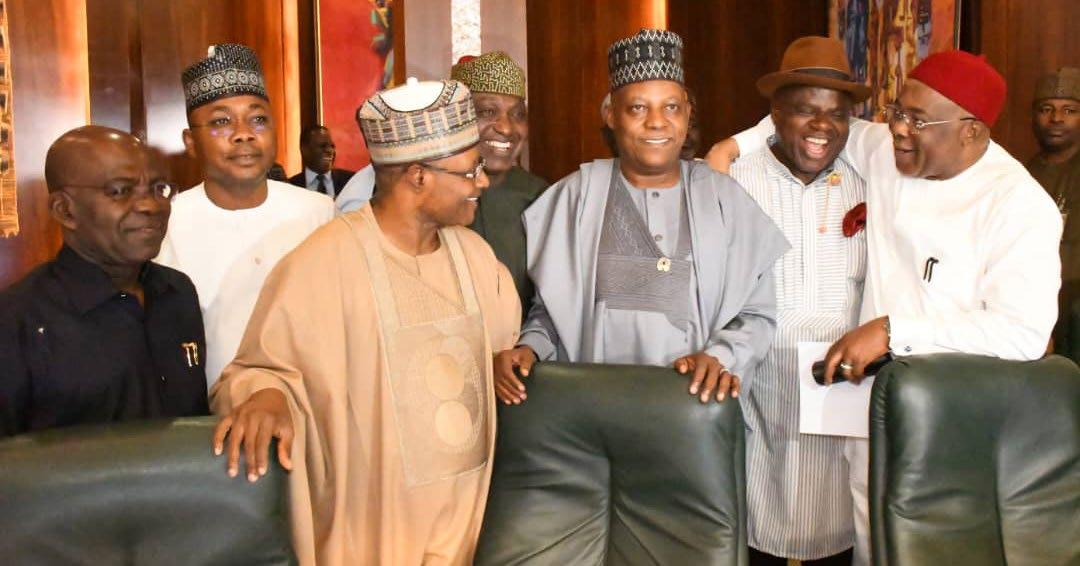
BY FELIX IFIJEH
President Bola Tinubu has urged young Nigerians active in the digital media space to use their platforms as tools for national unity, economic growth, and responsible civic engagement.
Speaking at the opening of the Progressives Digital Media Summit on Friday in Abuja, the President encouraged content creators and digital entrepreneurs to build businesses that create jobs, share content that promotes unity, and serve as catalysts for positive societal change.
The event, themed “Unveiling the Critical Role of New Media in National Development,” brought together key stakeholders in the digital communication space.
The President praised the creativity and resilience of Nigerian youth, describing digital media as a powerful force for economic and social transformation.
“From developing platforms to building vibrant online communities, you are redefining what is possible. Digital media now drives economic growth, civic engagement, and social change. It amplifies the voices of those previously unheard,” he said.
Reaffirming his administration’s support for digital innovation, Tinubu cited initiatives like the National Digital Innovation Fund and policies supporting a thriving startup ecosystem.
In his remarks, Special Adviser to the President on Information and Strategy, Bayo Onanuga, noted that digital media has become a critical battleground in shaping elections, citing examples from the U.S. and Germany.
“But social media is not a fair or regulated space. It is chaotic and often driven by sensationalism. Deepfakes, AIgenerated content, and click-driven misinformation now dominate the space,” he warned.
Onanuga expressed hope that the summit would tackle the challenge of fake news and highlight ways to restore credibility in the digital information space.
He, however, cautioned against the growing risks of cyber threats and disinformation.
Tinubu stressed the importance of verifying information before sharing it, warning that misinformation threatens the fabric of society.
“Your generation has embraced this moment. You’re using digital tools to innovate, educate, and demand accountability. But as your influence grows, so must our collective sense of purpose and responsibility,” he said.
“Build businesses that employ others. Create content that uplifts and unites. Use your influence to foster unity—not division.”
Also speaking at the event, Chief of Staff to the President, Femi Gbajabiamila, commended digital media practitioners who have projected Nigeria positively on the global stage.
“You are the vanguard of a reborn Nigeria. Under President Tinubu’s leadership, we have begun a longoverdue march toward greatness. The road is tough, but necessary,” he said.
The summit convener and Special Assistant to the President on New Media, Segun Dada, underscored the growing power of digital media, noting that in less than a decade, it has evolved from a tool for personal connection to a major driver of communication, innovation, and public influence.
He called for a collective effort to harness its potential while addressing risks such as disinformation, data privacy breaches, and threats to national unity.
The Dangote Petroleum Refinery and Petrochemicals has appointed David Bird, the former head of Oman’s Duqm Refinery, as its new Chief Executive Officer (CEO).
According to S&P Global, the appointment, which took effect from July 2025, aims to tackle production hurdles and drive the next phase of the refinery’s expansion.
However, Aliko Dangote, the chairman of Dangote Industries Limited, will retain his role as chairman of the refining business while continuing to serve as CEO of the broader group, which operates cement, fertiliser, and sugar refining subsidiaries.
Bird, who previously served as the head of operations
at Shell’s Balau Pokom refinery, will lead the fuels and petrochemicals division of the Dangote Group. His appointment signals a renewed focus on scaling production, streamlining operations, and solidifying the company’s position as a dominant force in Africa’s refining and petrochemical landscape.
The company hopes to leverage Bird’s experience in expanding the Duqm refinery and diversifying its crude slate. According to a LinkedIn update, Bird’s new role at Dangote will focus on maximizing refinery output and efficiency, pushing the group’s reach beyond the Nigerian market and across the African continent.

Since its commissioning in January 2024, the Dangote refinery has quickly grown its market share in the Nigerian fuel sector, significantly reducing the country’s reliance on gasoline imports. However, founder Aliko Dangote has criticised “rent-seeking” trade partners and substandard fuel imports for straining the business.
Bird’s philosophy, which he previously shared in an interview with Platts, emphasises a trading-led approach centred on high utilisation rates, efficiency, and feedstock flexibility. This approach aligns with the refinery’s recent shift to processing a wider range of crude grades, partly due to the limited availability of the specific Nigerian oil it was designed to handle.



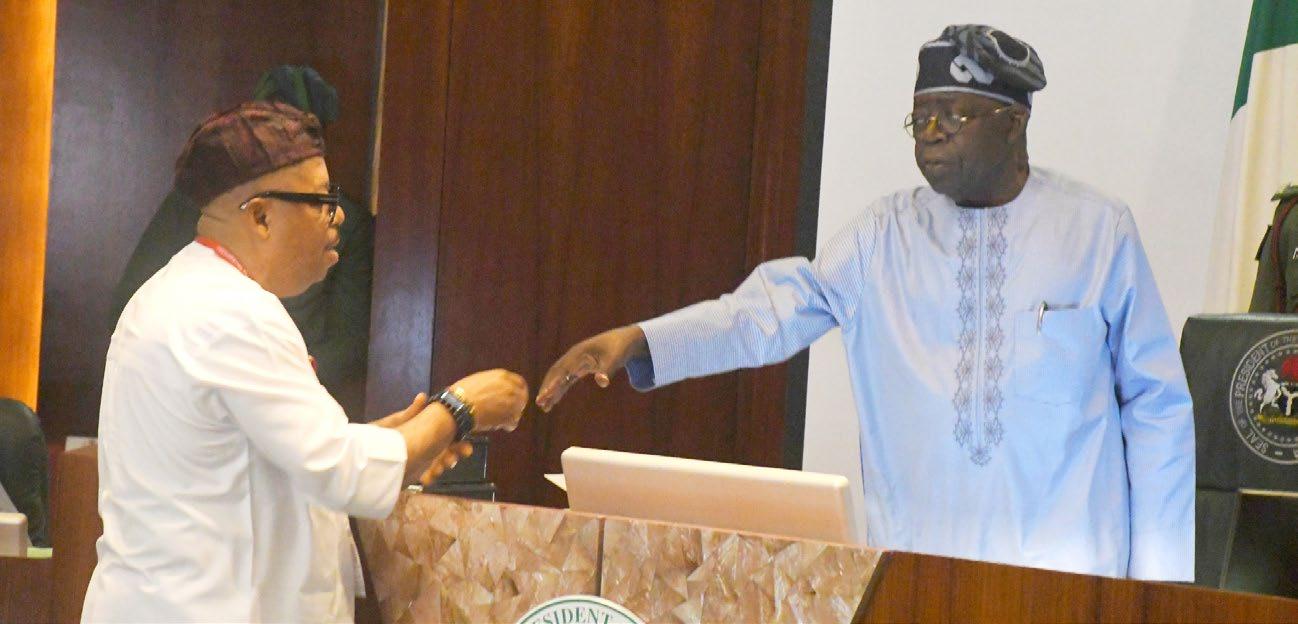
The government of Ghana has warned Nigerians-must-go protesters to desist from targeting citizens of its closest Anglophone neighbour nation living in their country.
The warning comes amid rising tensions after a weekend by local traders who demanded the expulsion of Nigerians, over claims of criminal activities and cultural clashes.
During a two-day visit to Ghana, Bianca Odumegwu-Ojukwu, Nigeria’s Minister of State for Foreign Affairs, met with Samuel Ablakwa, Ghana’s Foreign Minister, to address concerns about the safety of Nigerians and their businesses in the country. The government of Ghana has warned Nigeriansmust-go protesters to desist from targeting citizens of its closest Anglophone neighbour nation living in their country.
The warning comes amid rising tensions after a weekend by local traders who demanded the expulsion of Nigerians, over claims of criminal activities and cultural clashes.
The National Association of Nigerian Nurses and Midwives has suspended its nationwide warning strike.
This was disclosed to our correspondent on Saturday by the Assistant Secretary-General of NANNM, Chidi Aligwe, disclosed this on Saturday.
On Wednesday, nurses and midwives in the country embarked on a seven-day warning strike to press home their long-standing demands, including an upward review of shift allowance, adjustment of uniform allowance, a separate salary structure for nurses, an increase in core duty allowance, mass recruitment of nurses, and the establishment of a nursing department in the Federal Ministry of Health, among others.

During a two-day visit to Ghana, Bianca Odumegwu-Ojukwu, Nigeria’s Minister of State for Foreign Affairs, met with Samuel Ablakwa, Ghana’s Foreign Minister, to address concerns about the safety of Nigerians and their businesses in the country. At a joint press conference, Ghanaian Foreign Minister said the arrowhead of the protest has been reprimanded, adding that he has also issued a public apology. “As we have agreed, the video that went viral—we were all outraged. That video has been condemned by our counterparts from Nigeria,” Ablakwa said. “They have reprimanded the gentleman, and he has been asked not to engage in such statements. As we do know, I had met him earlier. He was very contrite and apologised about everything.
“He has issued a public statement to the government and people of Ghana and based on his conduct; he has demonstrated good faith. And will not thread that part any
longer. “It is also important that we have agreed that we will deepen our community-to-community engagement. We have great anthropological antecedents which shows that we are one people.” Ablakwa clarified that discussions with a Nigerian accused of attempting to establish a “kingdom” in Ghana revealed no territorial ambitions.
However, he expressed concern over a rise in crime involving Nigerians in Ghana and urged them to comply strictly with local laws. Both ministers agreed on the importance of strengthening diplomatic ties and fostering peaceful coexistence between their peoples. Odumegwu-Ojukwu reassured that the situation remained calm since her arrival and urged both countries to maintain cordial relations, saying: “The message would be that there is no cause for alarm. The situation is being handled quite effectively. We will continue with our stakeholders’ engagements.”
The strike was suspended on Saturday following a virtual meeting of NANNM’s National Executive Council.
Earlier, the Minister of Health, Prof. Ali Pate, disclosed to journalists on Friday after a closed-door meeting with the leadership of the striking health workers in Abuja.
Pate said the decision followed agreements reached between the Federal Government and the union’s leadership during the meeting. However, the specific terms of the agreement were yet to be made public at the time of filing this report.
Among the union’s key demands are improved welfare packages, enhanced allowances, better working conditions in federal health institutions, and the full gazetting of the
nurses’ scheme of service approved in 2016. Other demands include the implementation of a National Industrial Court judgment delivered on January 27, 2012, an upward review of professional allowances, and the recruitment of more nursing personnel with adequate medical equipment.
The association also called for the establishment of a Department of Nursing within the Federal Ministry of Health, inclusion of nurses in national health policy-making bodies, representation on boards of federal health institutions, centralization of internship postings for graduate nurses, and the institutionalization of consultancy roles for qualified nurses and midwives.
The Nigerian Guild of Editors, NGE, has strongly condemned the recent order for the closure of Badeggi Radio by Governor Mohammed Umar Bago of Niger State. President and General Secretary of the Guild, Ezedeumba Anaba and Ukeh Onuoha, respectively, said on Saturday that the closure was a blatant attack on press freedom and democracy in Nigeria. “This act of censorship and intimidation undermines the fundamental principles of a democratic society, where free press is essential for holding those in power accountable,” they said, adding that,
“Section 39 of the 1999 Constitution (as amended) guarantees freedom of expression and press freedom. Also, Article 9 of the African Charter on Human and Peoples’ Rights, which Nigeria is signatory to, also guarantees press freedom and freedom of expression.”
According to them, the closure of Badeggi Radio, a vital platform for

public discourse and information dissemination, is a worrying trend that threatens the very fabric of our democracy. Governor Bago acted outside his powers to order the closure of a radio station.
The power to sanction television and radio stations, both argued, only lies with the Nigerian Broadcasting Commission (NBC) after a thorough investigation of any alleged breach of the Code. “We are happy that the Minister of Information and National Orientation, Mallam Mohammed Idris, has pointed this out. This should go beyond observing the anomaly. The federal government should order the unsealing of the premises of the radio station, while investigation is carried out.
“Government officials should know that we are in a democracy and therefore, the act of arbitrary order for the sealing off and closure of

a radio station is unacceptable. Arbitrary closure of media houses reminds us of the dark days of military rule, which ended 26 years ago.
“Governor Bago’s alegation of incitement of violence by the radio station is a serious issue, which has to be investigated and proven before any action can be taken. We urge the media to operate under strict adherence to the code of ethics of journalism, with responsible conduct at the back of the minds of the professionals.
“We also call on the authorities to take measures to respect the rights of citizens to access information and express themselves freely. Badeggi Radio should be reopened while the investigation continues.
“The Guild reiterates that a free and independent press is essential for a functioning democracy and demands that governments at all levels respect and uphold this fundamental right.”
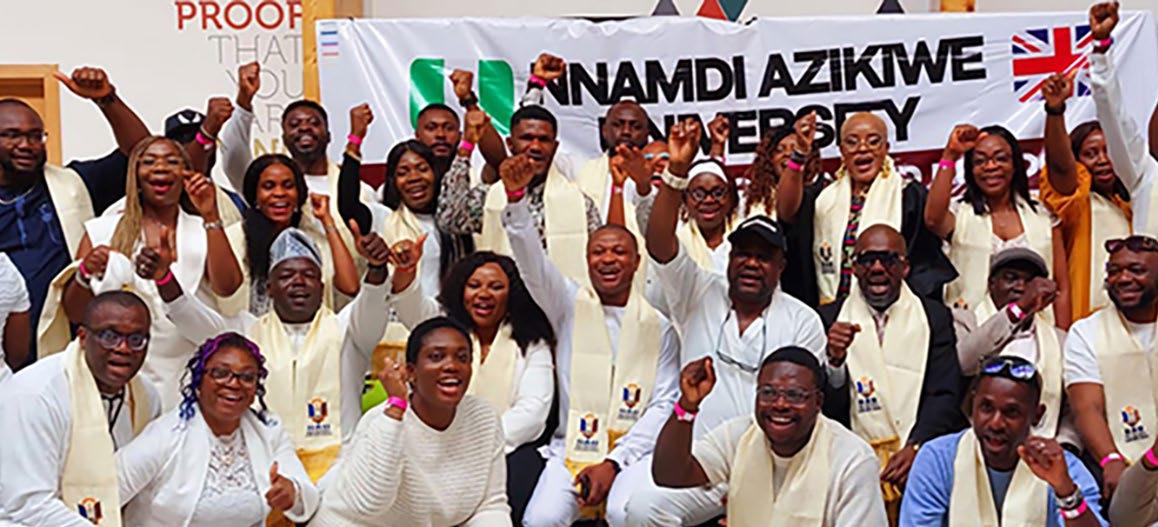
Alumni of UK Unizik after a maiden reunion meeting in London recently.
The UK branch of the Nnamdi Azikiwe University, UNIZIK, Alumni Association has held its maiden summer reunion in Hounslow, West London, attracting participants from England, Scotland, Northern Ireland, and Wales for the landmark event.
Themed “JOY IS COMING,” the reunion brought together dozens of alumni for a day of celebration, reconnection, and reflection.
The event was chaired by Chief Sir Dozie Donat Okolo, a former national presidential candidate in the 2023 NAUAA elections in Awka, Anambra State.
He delivered a keynote address on “The Impact of Diaspora Alumni in the Nigerian Economy,” encouraging members
BY FELIX IFIJEH
The Lagos State Government has directed all newly inaugurated Chairmen of the 20 Local Governments and 37 Local Council Development Areas (LCDAs) to suspend the appointment of political aides, including Supervisors, Special Advisers, and Senior Special Assistants.
The directive was contained in an official circular dated July 31, 2025, with reference number MLG/LGA/C.27/S./VOL.XIV/496.
It was signed by the Permanent Secretary, Ministry of Local Government, Chieftaincy Affairs and Rural Development, Mrs. Kikelomo Bolarinwa.
to invest in both their personal networks and national development.
In his address, Interim President of NAUAA UK, Stanley-Pio Onwuzuruike emphasised the importance of building a strong, united alumni network in the United Kingdom. He called on members to support each other professionally and socially, while also giving back to indigent students and the wider Unizik community in Nigeria.
The celebration also marked a significant milestone for alumni couples, most notably the 22nd wedding anniversary of a Zikite couple, with tributes extended to other Zikites married to one another. Attendees shared heartfelt moments, danced to music, and reconnected with old classmates.
A highlight of the reunion was the official launch of the NAUAA UK Muffler, a symbolic identity piece for the association. Members were formally invested during the occasion.
An engaging American auction added excitement to the day, with the highest bid reaching £550. The event was emceed by popular Zikite and celebrity host MC A1, who brought humour and energy to the room.
Special recognition was given to Chief Emeka Onyeje (Ezeugonnaya), Chairman of the Planning Committee, and the organising team for their dedication and coordination.
The reunion was hailed as a huge success and sets the foundation for future alumni engagements within the diaspora.
The circular reiterated the position of Governor Babajide SanwoOlu, as stated during the recent swearing-in ceremony, that the appointment of Secretaries to Local Governments and supervisory councillors remains prohibited for now.
According to the directive, only the appointment of a Chief of Staff is currently permissible. Chairmen who have made any additional political appointments are instructed to reverse them without delay.
The statement reads in part: “I write to refer to the directive of Mr. Governor at the swearing-in ceremony regarding the appointment
BY KAJO MARTINS, MAKURDI
The Benue State House of Assembly has recommended the immediate suspension of the Chairman of Otukpo Local Government Area, Hon. Maxwell Ogiri, over allegations of financial misconduct and abuse of office.
The House also called for the swearing-in of the Deputy Chairman to assume leadership of the council in an acting capacity.
The resolution followed the submission of a report by the House Committee on Local Government, Security, and Chieftaincy Affairs, which accused Ogiri of diverting
public funds into a private account and illegally shutting down the legislative chambers of the council.
Lawmakers condemned the alleged misappropriation of funds, harassment of councillors, and closure of the legislative arm, describing the actions as unacceptable and detrimental to good governance at the grassroots.
To further investigate the matter, the Assembly constituted a five-member panel chaired by Hon. Bemdoo Ipusu. Other members include Hon. Michael Audu, Hon. Cyril Ekong, Hon. Solomon Gyila, and Hon.
of Political Office Holders in the Local Governments and Local Council Development Areas, particularly the Supervisors, Special Advisers, and Senior Special Assistants.
“I am to reiterate that the appointment of the Chief of Staff is the only appointment approved/permissible as you assume office, while other appointments should be stepped down until further directive.
“You are enjoined to note the above and revert any appointment that has been made, except that of the Chief of Staff.”
Berger Alfred, with Mr. Bem Abunde was appointed as secretary. The panel is expected to submit its findings within one week.
The plenary, presided over by Speaker Aondona Dajo, also condemned the reported harassment of the Deputy Speaker by alleged supporters of the Ado Local Government Chairman.
The Assembly urged the Nigeria Police and Department of State Services to take immediate steps to prevent further breakdown of law and order.




L-R: UNICEF Social and Behavioural Change Consultant for Ogun State, Mr. Micheal Oyedeji, Health Educator with Ogun State Primary Healthcare Development Board, Mr. Waheed Elegede and UNICEF Programme Director, Kemi EwedairoYusuf during the stakeholders meeting to sensitise the public on the need to facinate pregnant women against terminal diseases held in Abeokuta Ogun State at the weekend.
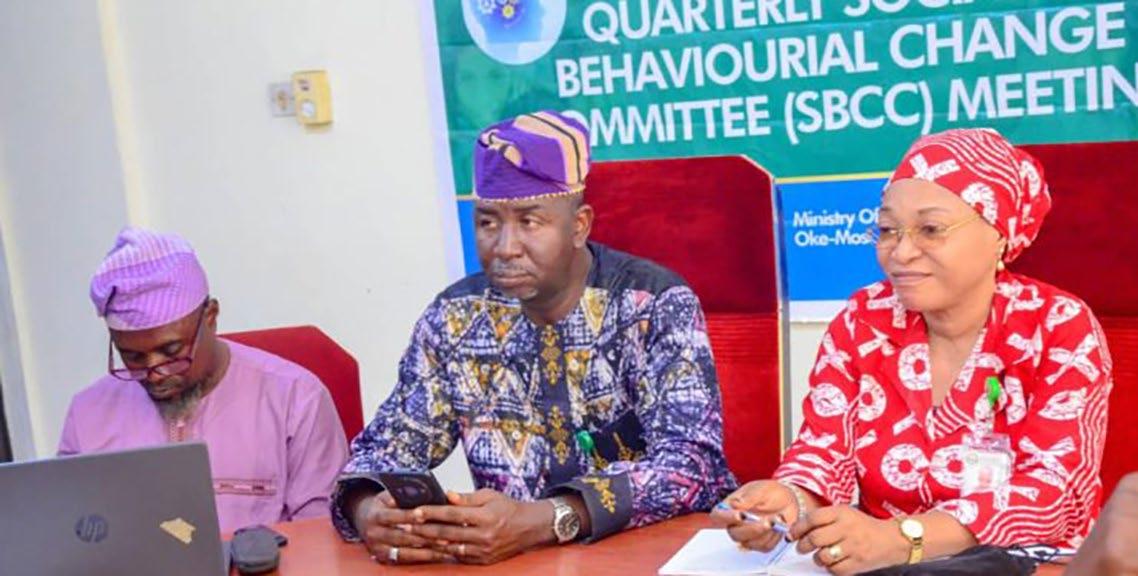
BY UDEME UTIP, UYO
The Akwa Ibom State Government has donated a parcel of land for the establishment of a Forward Operational Base (FOB) for the Nigerian Air Force (NAF) in the state.
Governor Umo Eno announced the donation during a courtesy visit by the Chief of Air Staff, Air Marshal Hassan Bala Abubakar, at Government House, Uyo, on Friday. He also presented the official documents for the land to the Air Force delegation.
Governor Eno said the gesture reflects the state’s continued commitment to strengthening security infrastructure and deepening collaboration with security agencies.
According to him, the Air Force base would bolster security operations within Akwa Ibom and along national boundaries, particularly as the state is a key coastal location.
“We thank you for the Air Force base that is going to be strategically located in Akwa Ibom State. Before now, apart from the school and the presence at the airport, the Air Force was the only arm of security not fully on ground in Akwa Ibom.”
He explained that the establishment of the FOB would formally integrate the Nigerian Air Force into the state’s


security architecture, enhancing air surveillance and response capabilities.
“As a littoral state, this base will help us maintain oversight over our coastal boundaries and support air operations that contribute to our internal security”, the Governor stated.
Governor Eno noted that Akwa Ibom has consistently ranked among the most peaceful states in the country, attributing this to the state’s firm commitment to security and inter-agency collaboration.
He also acknowledged the academic excellence at the Nigerian Air Force School in the state and appealed for increased enrollment opportunities for children of Akwa Ibom residents.
In response, the Chief of Air Staff, Air Marshal Hassan Abubakar, expressed gratitude to the Governor and people of the state for their support and hospitality. Abubakar said the donated land, located within proximity to the Eket Airstrip, would significantly aid in the rapid development of the Forward Operational Base and related facilities.
He described the land donation as strategic, noting that the base would enhance both national defence and
BY UDEME UTIP, UYO
Asenior officer of the Police Command’s Special Weapons and Tactics (SWAT) Unit, in Akwa Ibom State, CSP Ebong Thompson, has rejected an N800,000 bribe offered in a bid to secure the release of a suspected armed robber.
The Police Public Relations Officer, Timfon John, who disclosed this in a statement said the prime suspect, 53-year-old David Samuel Isaac, was arrested after police traced a Samsung smartphone, allegedly stolen at gunpoint, to his possession.

homeland security, while also encouraging commercial and tourism activities in the region.
“I must thank you, Your Excellency, for your support in transferring the Eket Airstrip to the Nigerian Air Force. This shows your commitment to national security and the growth of the blue economy.”
He emphasised that the base would help secure key national assets such as the Floating LNG Plant, Ibom Deep Sea Port, and the BUA Refinery, all located within Akwa Ibom’s coastal corridor.
“These facilities hold immense economic value, and the enhanced NAF presence will provide additional layers of protection for them”, he said.
Abubakar assured that the Air Force would continue to support the security agenda of the state, especially under the ARISE development blueprint of the Umo Eno administration.
The event was attended by top government officials, including the Deputy Governor, Senator Akon Eyakenyi; Speaker of the State House of Assembly, Rt. Hon. Udeme Otong, Executive Assistant and Chief Delivery Advisor, Mr Aniefiok Johnson, and members of the State Executive Council.
Investigations further revealed that Isaac, a repeat offender, had previously been arrested and prosecuted for a similar offence in 2024 but returned to criminal activity after his release.
The second suspect, Emmanuel Mendie Peter, was arrested at the SWAT office while attempting to offer N800,000 to secure Isaac’s release and suppress the case. He was immediately taken into custody for bribery.
In recognition of their professionalism, officers involved in the operation received letters of
commendation from the Commissioner of Police, CP Baba Mohammed Azare.
Speaking at the Command’s end-of-month press briefing, CP Azare praised the SWAT team’s integrity and urged other officers to emulate their conduct, noting that upholding ethics and discipline remains central to effective policing.
The Command also issued a stern warning to the public against attempts to influence or compromise police investigations, saying such acts would be met with the full force of the law.
BY FELIX IFIJEH
After overcoming its leadership crisis, the Peoples Democratic Party, PDP, appears to be in a hurry to launch into the politics of 2027. Its committees, namely the National Reconciliation Committee, led by former Osun Governor Olagunsoye Oyinlola; National Disciplinary Committee led by Chief Tom Ikimi and the seven-man post-National Executive Committee, NEC, reconciliation committee led by ex-President of the Senate, Dr. Bukola Saraki, have since claimed successes in their reconciliation efforts, though some challenges still loom ahead of the National Convention of the party fixed for November, 2025 at Ibadan, Capital of Oyo State.
Although the Ibadan convention was part of a decision to accommodate the interests of the aggrieved parties in the crisis over the office of National Secretary, which led to the return of embattled Senator Samuel Anyanwu as national scribe, the camp of the Federal Capital Territory Minister, Nyesom Wike, is said to be uncomfortable with the Ibadan deal.
Sources within the PDP say that Wike and his allies fear that Governor Seyi Makinde has perfected plans to position himself for the presidential candidacy of the party in 2027.
The question of who becomes the party’s presidential candidate has become more poised because of its decision to zone the ticket to the South, a resolution that analysts say eventually forced the former Vice President Atiku Abubakar, two times presidential candidate of the party in 2019 and 2023, to resign.
Atiku Abubakar’s resignation coincided with the long- standing demands of the Wike group, but, unfortunately, it has become a source of worry for the group because Makinde looks poised to steal the show. Besides, another group that is looking beyond Wike and Makinde, has been scheming to draft one-time member and Labour Party Presidential candidate in 2023, Peter Obi into the PDP. Led by a founding member of the party, Prof. Jerry Gana, the group believes that only Obi stands the chance for the PDP to make the desired impact in the 2027 presidential contest.
Prof Gana contends that the former Anambra State Governor would defeat any contender in Nigeria’s northern states if he contested on the PDP platform. Gana said, “I’m a researcher, and I research opinions. In the northern states, Peter Obi under the PDP will defeat any candidate, because our people are very fair-minded.”
THEWILL recalls that Obi resigned from the PDP in May 2022 to lead the Labour Party during the 2023 elections. According to Gana, the grassroots base of the PDP, following its 16 years in office during which it enjoyed unrivalled dominance at all levels of governance in the country, is still yet to wane even as it contends with the same pedigree of the governing All Progressives Congress, APC.
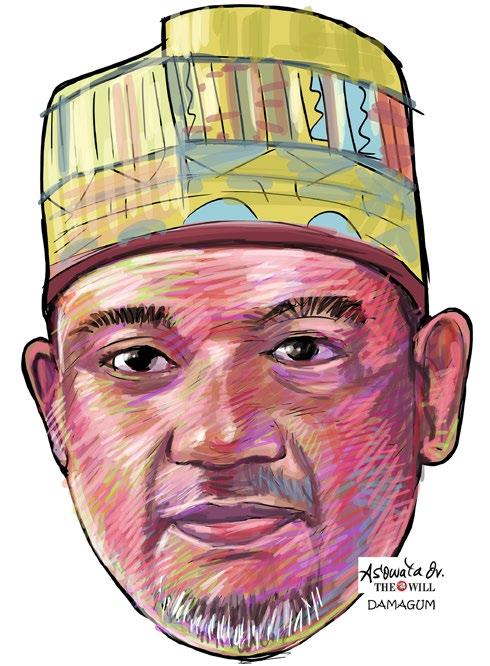
House. We were totally in control and that is why we were very delighted that we restored democracy to Nigeria and re-established civil rule.”
According to him, the recent party conflict was a mere show by a few Abuja-based members of the elite with no significant impact on the grassroots base of the PDP. According to the former Minister of Information and Orientation, from 1999–2003 under President Obasanjo, the recent zoning of the presidential ticket to the South has added more fire power to the party.
“In tune with this patriotic wisdom of the founding fathers, we urge all our leaders to support the strategy of bringing out our presidential candidate for 2027 from the southern states. Such a strategy will not only ensure victory at the polls, but promote justice, fairness and equity. In 2031, it will be the turn of the North. Our people are very fair, and we are building a nation.”
However, Obi has denied any form of allegiance or support for the PDP. In a statement by an aide, he said there was no plan to join the PDP. Rather he reaffirmed his allegiance to the African Democratic Congress, ADC, the coalition that he alongside Abubakar and former Kaduna State governor, Nasir el-Rufai championed to fruition.
clear from his recent outings that he has made up his mind to go for the presidency on the platform of the party. During a recent courtesy visit to the incoming Olubadan of Ibadan, Senator Rasheed Ladoja, Governor Makinde solicited support from kingmakers present at Ladoja’s residence. Led by Ladoja, all the kingmakers present responded positively to the governor’s request and prayed for him to succeed in his presidential ambition.
With the PDP’s stand on zoning, Makinde’s Bauchi State counterpart, Bala Mohammed who had been nursing a presidential ambition on the platform of the party, may have to take a bow. What is still unclear is how Wike and his group, comprising former Abia governor, Okezie Ikpeazu; former Benue governor, Samuel Ortom; and former Enugu governor, Ifeanyi Ugwuanyi- would react to the new development.
Makinde was once a member of this group, then known as G-5, which opposed the party and worked against its presidential candidate in the 2023 election because of the zoning formula. What is clear is that with Makinde’s exit, the party’s zoning of the presidency to the South and the stakeholders compromise that allowed Senator Anyanwu to retain his seat as National Secretary, pending the November Convention, the influence of Wike and his group has been whittled down.
For the party that has been witnessing defections of its big-wigs, by two governors, many lawmakers and local government chairmen, it is hard to see how they would fare in the 2027 poll, more so when formidable rival groups like the ADC has sprung up and the governing APC is waxing stronger with the defection bandwagon.
Former Niger State governor, Aliyu Babangida was more realistic when he addressed the lingering problem of defections that has reduced the strength of the party in many states of the federation. He said: “You don’t invite nomadic politicians back to your place; these were people with a history of nomadism. Our constitution is specific, when you leave the party; you join the queue. The party is not just to win elections.
“The party is also to ensure the culture of selling real, principled politics. Even if we don’t win elections, but we are one united, principled party, we will be recognised.

He said, “I must confess that many people have forgotten that the PDP was created as a grassroots organisation. In 1998, we were formed and then, moving to the elections in 1999, we were in every polling unit, because we are the ones who really won the first election. Many people have forgotten that the PDP won most of the local governments. When it came to the presidential elections, we won the presidency, we won the Senate, and we won the

Speaking in Abuja, Ibrahim Umar of the Peter Obi Media Reach, POMR, said, “Peter Obi has been unequivocal in his position in the ongoing coalition and didn’t need anyone to put words into his mouth. He has remained focused on his mission but would not accept anybody attributing a statement to him just to satisfy their devious agenda. The media office wishes, therefore, to urge the public to disregard any statement purported to come from him outside his media office or his official handle.”
Still, Makinde who had earlier said he was perfect for the job but was still consulting, has made it quite
The question of who becomes the party’s presidential candidate has become more poised because of its decision to zone the ticket to the South, a resolution that analysts say eventually forced the former Vice President Atiku Abubakar, two times presidential candidate of the party in 2019 and 2023, to resign







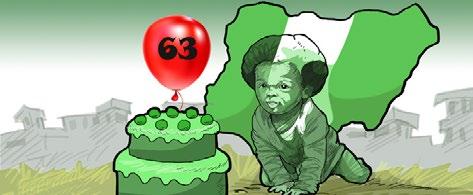







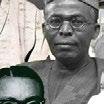





Page N600, 000

000
Double Spread Half Page N1, 200, 000
10X6 N700, 000
10X5 N650, 000
10X4 N600, 000
10X3 N500, 000
9X6 N440, 000
9X5 N395, 000
9X4 N335, 000
9X3 N310, 000

8X6 N410, 000

8X5 N380, 000
7X5 N320, 000



7X4 N315, 000

6X5 N280, 000

6X3 N145, 000
6X2 N85, 000
5X2 N70, 000
4X4 N160, 000
4X3 N95, 000
4X2 N65, 000
3X3 N60, 000
3X2 N50, 000
2X2 N30, 000
2X1 N15, 000 1X1 N7, 000
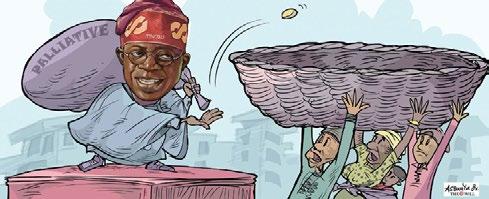









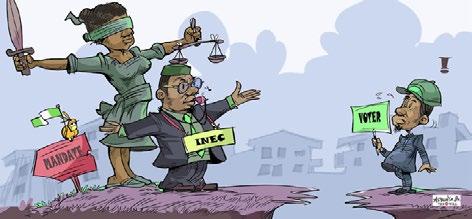



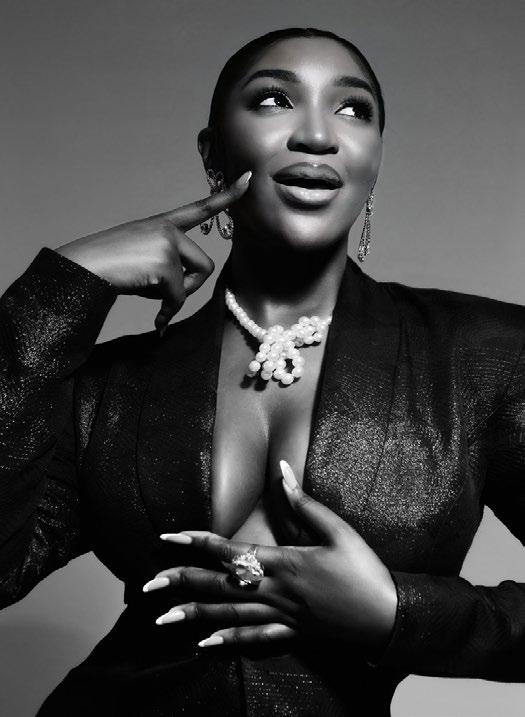









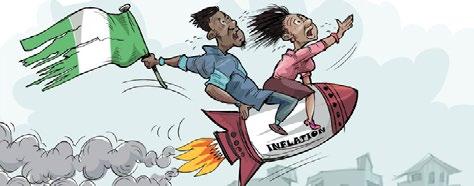
























IIn the period prior to the creation of more states, Nigeria was under the three regions; she prospered in economic and social development. The healthy competition and rivalry among the three regions witnessed what may be called the golden period of the Nigerian State. Governance was inclusive
“
t is amazing that the six geo-political zones in Nigeria are asking for additional states in a country that is weighed down by recurrent expenditure, low capital formation, poor production capacity, decades of stagnant agriculture and mediocrity in all spheres of human endeavour. And the politicians, always with a knack for self-interest, appear willing to oblige to the demands.
As at press time, the number of proposed new states before the National Assembly stood at 46. There are six from the Northeast; seven from the Northwest; 12 from the Northcentral; six from the Southeast; seven from the SouthSouth and eight from the Southwest. Virtually all the states want to be divided into two and in some cases like Oyo and Benue, three additional states are being proposed. While the Constitution recognises the diverse nature of the country and supports the need for administrative units based on the identity of the people, it is arguable whether autonomy for its sake is what Nigeria needs now amid the deepening economic and social malaise mentioned above.
Historically, Nigerians have been on this lane of agitation for states before independence in 1960 when the Willink Commission was set up at the Nigeria Constitutional Conference in London in September 1957, following disagreement among the delegates on the number of states to be created. The Commission was directed as a matter of urgency to look into the demand for states to, “eliminate fears of ethnic domination among minorities.” It,
however, conducted and submitted a report that found no established reason to justify the creation of new states. Nonetheless, the regional governments made political capital out of the agitation with each of them expressing readiness to support the creation of state in their rivals’ territory until the 1966-67 civil war, during which the General Yakubu Gowon military regime took the plunge to create 12 states on its justification that “the main obstacle to the future stability in this country is the structural imbalance in the Nigerian federation. Even decree No. 8 or Confederation or loose Federation will never survive if any section of the country is in a position to hold others to ransom.”
Subsequent military regimes kept adding up the number. General Murtala Muhammed’s regime jacked up the number of states to 19 in 1976, while G Ibrahim Babangida’s administration raised the number to 21 states at first and then to 30 in 1991. The General Sani Abacha military regime in 1996 added six more states to take the number to 36 states.
Continuous agitation since then has increased rather than waned, even in the face of evidence that many of the states are basket cases and they are non- viable without the monthly allocations from Abuja.
Surprisingly, the 2014 National Conference held under ex-President Goodluck Jonathan’s government recommended 54 additional states! In the period prior to the creation of more states, Nigeria was under the three regions; she prospered in

NIGERIA BUREAU:
36AA Remi Fani-Kayode Avenue, GRA, Ikeja. Lagos, Nigeria. info@thewillnews.com +234 810 345 2286, +234 913 333 3888
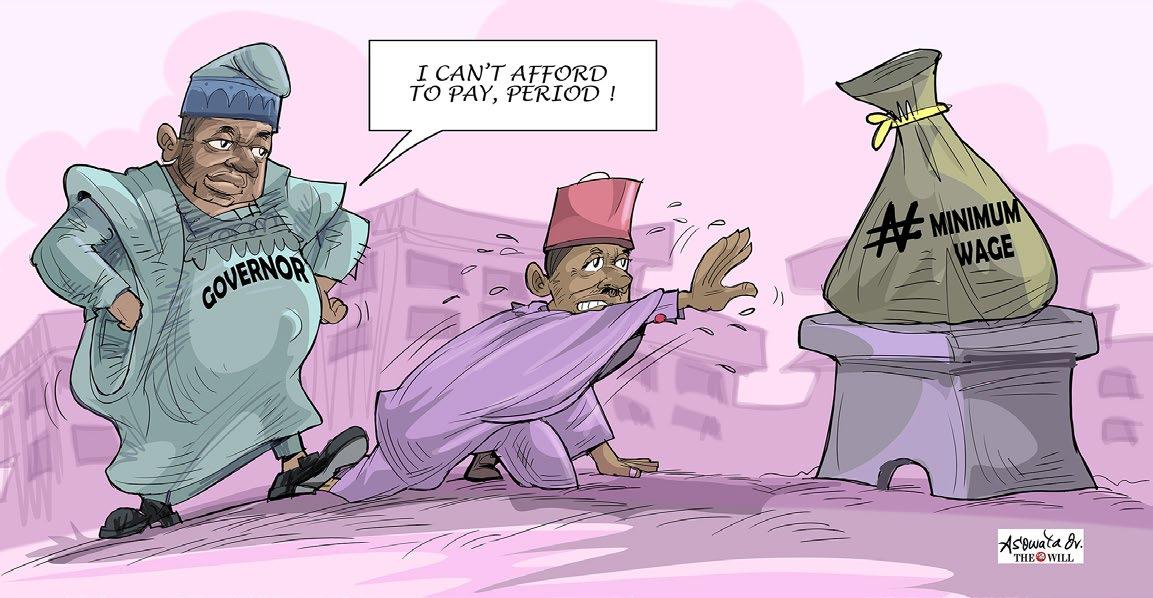




BY CHETA NWANZE
Adeafening roar had erupted across Nigeria when the national women’s football team, the Super Falcons, defeated their Morrocan counterparts by 3 goals to 2 and won the Women’s African Football Cup Of Nations, WAFCON, for the 10th time. It was a moment of unadulterated joy, a testament to our women’s national team’s resilience, skill, and sheer talent.
Seeing President Tinubu swiftly rewarding these victorious athletes with cash bonuses was a welcome and commendable development, because the girls needed to feel appreciated. This immediate recognition is an important step in acknowledging the immense effort and sacrifice these athletes pour into representing our country. Their hard-fought and well-deserved victory brought a much-needed wave of national pride. This kind of prompt appreciation can inspire future generations and, crucially, help retain top talent within our borders.
However, while we rightly celebrate this recent act of goodwill, it is impossible to ignore the long shadow cast by past unfulfilled promises and painfully delayed rewards. The data paints a stark picture: the legendary Super Eagles, winners of the 1994 AFCON, were promised houses in Abuja by General Sani Abacha, a pledge that only began to see significant fulfilment from 2022 onwards – nearly three decades later. Imagine the demoralising wait for a reward earned through national glory. Similarly, the Golden Eaglets, who triumphed at the 1985 U17 World Cup, had to wait until 2015 for President Buhari to fulfil a cash promise, a staggering 30-year delay.
Even the iconic Dream Team of 1996, Olympic football gold medallists, face ongoing delays with their promised land allocations, despite receiving cash rewards relatively quickly. Such delayed promises could erode trust, dampen the spirit of future athletes and send a clear message of systemic neglect.
These historical precedents highlight a pervasive truth about Nigerian sports: our victories often come not because of a robust, supportive system, but despite its glaring deficiencies. We celebrate individual brilliance and sheer tenacity, exemplified by legends like Chioma Ajunwa, who defied immense odds to win Olympic gold, or Victor Osimhen, whose meteoric rise to global football stardom is a testament to raw talent honed through personal grit, often with minimal systemic support from home. This lack of consistent, systematic investment and support inevitably leads to a brain drain of sporting talent.
Athletes like Favour Ofili, a prodigious track and field star, find themselves seeking better training facilities, coaching,

and opportunities abroad. Despite their recent triumph, even the Super Falcons have consistently battled issues with unpaid match bonuses and allowances before and during tournaments – a disheartening struggle that underscores the systemic neglect even our most successful teams face.
In a country grappling with economic challenges, investing systematically in sports might seem like a luxury. Yet, it is precisely in such times that we should recognise sports as a powerful economic catalyst. A thriving sports industry creates a significant knock-on effect throughout the economy. It stimulates job creation in coaching, sports medicine, event management, merchandise production, and media. Improved sports infrastructure, such as stadiums and training centres, not only benefits athletes but also creates construction jobs and boosts local economies. Major sporting events attract tourism, generating revenue for hospitality, transport, and local businesses. It is not out of the goodness of their hearts that Morocco hosted two consecutive Wafcons, is hosting the next one, is hosting the next Afcon, and wants to host a World Cup and a World Club Cup. It’s all about the Benjamins! Furthermore, a healthy, active population, encouraged by accessible sports, reduces healthcare costs and increases productivity. Investing in sports is not merely about winning medals but about building a healthier, more engaged populace and diversifying our economic base.
The path forward is clear. While rewarding winners is important, it is a reactive measure. A sustainable future for Nigerian sports demands proactive, systematic investment. This means establishing and maintaining world-class training facilities, nurturing grassroots development programmes, ensuring timely payment of allowances and bonuses, and providing comprehensive support for athletes’ welfare and education.
INVESTING IN SPORTS IS NOT MERELY ABOUT WINNING MEDALS BUT ABOUT BUILDING A HEALTHIER, MORE ENGAGED POPULACE AND DIVERSIFYING OUR ECONOMIC BASE
Crucially, it requires a complete overhaul of sports administration, prioritising competence and transparency. The fight against corruption, which too often diverts funds meant for sports development, must be relentless. Only then can we build a system that truly supports our athletes, allowing them to thrive not just despite the system, but because of it, ensuring that the bitterness of unfulfilled promises does not overshadow the joy of victory, and that sports contribute meaningfully to our national prosperity.
BY DANJUMA LAMIDO
Omoyele Sowore has, over the years, positioned himself as Nigeria’s most consistent agitator, a man who thrives on chaos, fuels outrage and rarely offers concrete solutions. From the days of Sahara Reporters to his presidential ambitions and endless protests, Sowore has mastered the art of disruption. But at some point, one must ask: Is this activism or a career in perpetual provocation?
In the ever-evolving drama of Nigerian activism and statecraft, it seems Omoyele Sowore has finally met his match, not in a fellow protester or a courtroom judge, but in a career police officer whose calm steel and disciplined ascent have unnerved the chaos merchant himself: InspectorGeneral of Police, Kayode Egbetokun.
Sowore thrives on spectacle. From his #RevolutionNow theatrics to the performative outrage on social media, he has built a persona around constant rebellion, sometimes justified, often reckless.
But what happens when rebellion meets restraint? When does noise meet quiet competence? When publicity stunts are neutralised not with brutality, but with professionalism? You get Sowore’s latest obsession: the police reforms and quiet overhaul happening under IGP Egbetokun.
In recent weeks, Sowore has attempted to capitalise on the wave of police promotions and internal reforms to claim some form of moral or political victory. He has suggested, either directly or through his media surrogates, that the Nigerian Police Force only sprang into action after his protest. That narrative is as false as it is desperate.
The truth is that the recent promotions and strategic changes within the police are not reactions to street drama. They are part of a comprehensive vision spearheaded by IGP Egbetokun, someone who, unlike Sowore, does not need to wave placards to get results.
This IGP is not driven by ideology or populism but by service, professionalism and a deep understanding of the institution he leads. And that’s what unsettles Sowore. For once, he’s dealing with a system that refuses to play the villain in his predictable script.
There is no tear gas for the camera. No high-profile arrest to martyr him. No violent pushback to exploit. Egbetokun simply goes about his duty, building structures, rewarding merit and quietly fixing a broken system. That, more than any baton or bullet, is Sowore’s true nightmare.
Here lies the irony: while Sowore screams about police brutality from the sidelines, Egbetokun is the one leading the most reform-minded leadership the force has seen in
years.
Promotions have been based on performance, not patronage. Accountability is being instilled without media fanfare. The rank-and-file are beginning to feel seen, and so is the public. That’s progress.
Sowore’s style is built on the assumption that nothing ever changes unless he makes noise. But Nigeria is evolving in subtle, sometimes unseen ways, and men like Egbetokun are the ones doing the heavy lifting. No sirens, no hashtags, just results.
So yes, Sowore may continue his campaign of misinformation, clinging to relevance in a country that’s slowly moving past his brand of drama.
But in the quiet corridors of police reform, where real change happens, the name that echoes isn’t his own. It’s Egbetokun. And that, perhaps, is why the activist can’t sleep easily anymore.
Sowore’s constant criticism of every administration, every institution, and practically every public figure begs a serious question: what exactly does he want, and what has he built outside of noise-making Nigeria is undoubtedly burdened with problems, corruption, insecurity, and unemployment, but rather than collaborate, propose policy frameworks, or build grassroots capacity, Sowore seems content with theatrics and unending protests that lead nowhere. This is not patriotism; it is performance.
Activism should not be an escape from responsibility. We live in a country where young people are desperate for work, innovation, and leadership that produces results, not hashtags.
Sowore has constituted a nuisance to his generation; his family members now spit on his face. He is popularly called “Omoale Sowore” by the majority of the youths in his state, Ondo State.
IN A WORLD DRIVEN BY INNOVATION, STRATEGY, AND RESULTS, SHOUTING FROM THE SIDELINES WITHOUT BUILDING ANYTHING OF SUBSTANCE IS NO LONGER NOBLE
If Sowore believes he has better ideas, let him found a company, build an NGO that actually delivers services, or return to journalism with a fresh lens. Let him show, not just shout. Some may argue that his role is to hold the government accountable. Fair enough. But even watchdogs must evolve. Constantly calling everyone a sellout, fascist, or tyrant without offering practical alternatives is not activism; it is a tantrum.
In a world driven by innovation, strategy, and results, shouting from the sidelines without building anything of substance is no longer noble.
So here is the challenge: Sowore, go and get a job. Not a press job, not a protest gig. A real one. Build something. Employ people.



Continues from page 34
from digital channels, respectively, while First Holdco recorded N77 billion and GTCO made N56.5 billion.
Earnings from electronic banking include fees charged to customers for the use of digital channels, such as debit cards, mobile applications, USSD channels, POS, and other related online banking services.

(BVN) across the banks.
Continues from page 34
equivalent period in 2024. This underwhelming performance left First Holdco high and dry, with pre-tax profit dropping to N356.15 billion half way to 2025 year-end, from N420.97 billion in H1-2024.
In 2024, FirstBank screened 237 transactions worth over N3 trillion for sustainability risks, integrating ESG considerations into its credit framework.
In a similar vein, MTN Nigeria reported a net income of N414.9 billion for H1 2025 earned from its role as an enabler in the economy. This marks a 180 percent year-onyear growth from the N519.1 billion net loss reported in
NIBSS, in its role as a key player in the Nigerian financial ecosystem, has been instrumental in driving digital infrastructure and innovation which facilitate transactions
“With NIBSS as the enabler, working in tandem with the telecom firms and other participants in the value chain, the success story of the services sector would not happen if NIBSS is not there, or if it is not improving its infrastructure towards attaining the global trend. You can imagine what would be the fate of our economy without an efficient payment system,” said Nethan Akor, a telecom
NIBSS, in its role as a key player in the Nigerian financial ecosystem, has been instrumental in driving digital infrastructure and innovation, a major factor that accounts
According to the Managing Director/CEO, Premier Oiwoh, NIBBS upgrades its systems continuously. A reason for this is that NIBSS was established to carry on business as a service-oriented institution providing mechanisms for problem-solving innovations, especially as there has been a remarkable increase in the Bank Verification Number
Based on the latest data released by NIBSS, total BVN enrollment, which stood at 63.47 million at the end of 2024, increased to 66.23 million in July this year. This means that 2.76 million BVN enrolments were recorded during that period.
In June 2025, NIBSS launched the National Payment Switch (NPS) as part of its broader efforts to drive innovation in the Nigerian payment landscape which has lead to the development of new and more efficient payment solutions.
The NPS is expected to improve the speed and efficiency of payments, potentially leading to same-day clearing and settlement of high-value inter-bank transfers. The NPS is designed to streamline payment processes and potentially reduce bottlenecks and delays in settlements.
NIBSS had earlier launched other initiatives including the New Quick Response (NQR) payment platform, considered a revolutionary solution designed to transform how Nigerians pay for goods and services. NQR enables consumers to scan QR codes directly from their bank mobile applications for end-to-end transactions.
The platform caters to a broad range of use cases, including: Making payments fast and convenient for shoppers and merchants; Enabling digital payments for taxis, buses, and other transport services; Allowing users to pay utility bills, subscriptions, and more with a simple scan; Providing cost-effective payment options for SMEs to scale their operations.
Industry experts observe that the absence of NIBSS would lead to increased transaction costs, delays, and potential instability in the financial system, thereby frustrating the expansion of the services sector that boosts the GDP.
With about a 40 percent surge in tax expenses, the First Holdco net income plunged by 22.3 percent year-on-year to N283.77 billion from N365.30 billion in 2024,which was a better year for the elephant-branded financial services company.
FirstBank, the group’s flagship subsidiary, emerged as Nigeria’s Best Bank for Environmental, Social and Governance (ESG) at the prestigious Euromoney Awards for Excellence 2025, held recently in London.
This honour marks FirstBank’s second consecutive win in the ESG category, affirming its leadership in sustainable finance and responsible banking across Nigeria.
The Euromoney Awards for Excellence is regarded as one of the most coveted accolades in the global financial industry.
The highly competitive selection process involves rigorous analysis and assessment, measuring performance against strategic and impact-oriented criteria.
The bank earned the award through its deepened sustainability commitments embedded across its operations and community initiatives.
Among its flagship sustainability initiatives, FirstBank commenced a tree planting campaign in partnership with the Nigeria Conservation Foundation (NCF). It planted over 30,000 trees in 16 locations across Nigeria. It was the first phase of its 50,000-tree initiative, projected to absorb approximately 720 tonnes of CO2 by the end of 2025, contributing to climate resilience and supporting biodiversity preservation.
The bank has been proactive in gender inclusion through the Gender Market Strategy, disbursing over N43 billion FirstGem loans to women-led businesses in 2024. The bank’s commitment to inclusive banking saw a significant increase in the worth of transactions facilitated by FirstMonie agents to over N9 trillion.
The bank prioritises ESG/ sustainability capacity building, evidenced by the training of over 9000 employees, and its webinars and workshops reaching over 2,000 SMEs and corporates. The bank’s investment in leadership for over 2,000 female employees through the FirstBank Women Network has demonstrated a dedicated structural commitment to cultivating a knowledgeable and diverse workforce catering to the dynamic ESG landscape.
Transnational Incorporated,
operating income of N949.2 billion—up 37% YoY—ultimately delivering a strong boost to the bottom-line performance.
A cursory review of the bank’s financial performance shows broad-based growth across key lines, both year-on-year and quarter-on-quarter, providing a significant lift to its H1 2025 results.
compared to the first quarter of 2025. This
expense, resulting in improved net interest

In Q2 alone, interest income rose 14 percent over Q1, bringing half-year interest income to N1.49 trillion, which is already over 53 percent of the full-year 2024 figure.
The primary driver was income from loans and advances, although there was also an uptick in interest income from investments in securities and treasury bills.
Further analysis of the report showed that the bank increased its holding in securities and treasury bills by N3.07 trillion, while it also grew loans and advances to customers and banks by N2.4 trillion during H1 2025.
Beyond interest income, non-interest revenue was another strong contributor, buoyed by fees and commissions, as well as foreign exchange and trading income: Fees and commissions surged, driven by
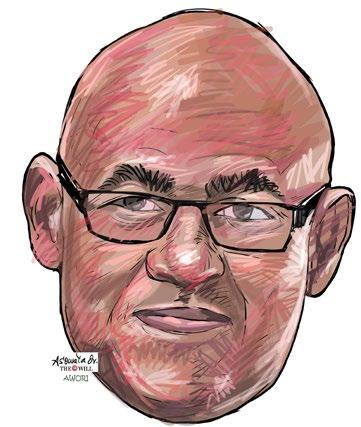
cash management services and creditrelated charges as FX and trading gains contributed approximately N298.3 billion to gross earnings in H1.
On the cost side, while interest expenses grew at a slower pace than interest income, recording a marginal increase of 11.73 percent YoY, they still reflected the impact of a higher interest rate environment and a N5 trillion expansion in customer deposits over the first six months.
The bank saw a notable increase in impairment charges, largely due to provisioning on customer loans with total loan impairment in H1 reaching N273 billion, indicating a more cautious credit stance or deterioration in asset quality in some markets.
From the key highlights, Ecobank’s H1 2025 balance sheet reflects a strong and expansive financial position, highlighting its dominance and relevance in the pan-African banking space. The growth in assets, deposits, and equity signals operational scale and financial depth across its 33-country network.
In terms of market performance, Ecobank Transnational Inc (ETI) closed its last trading day (Friday, August 1, 2025) at 37.45 NGN per share on the Nigerian Exchange (NGX). Ecobank began the year with a share price of 28.00 NGN and has since gained 33.8 percent on that price valuation, ranking it 77th on the NGX in terms of year-to-date performance.
Industry experts say the shareholders can be optimistic about ETI knowing the stock has accrued 23 percent over the past fourweek period alone—40th best on NGX. Data by the NGX revealed that ETI is the 42nd most traded stock on the NGX

Here’s something that might surprise you: The most valuable asset for any business, community, or nation doesn’t appear on any balance sheet.
We live in a world that celebrates the loud wins—the viral campaigns, the billion-dollar deals, headlines that grab attention. In modern imagination, power is often loud. It roars through economic indicators, military strength, and political decrees. Social media amplifies this bias toward the spectacular, rewarding those who can command attention in an increasingly fragmented landscape. Yet beneath all the noise lies a quieter, steady force that shapes the contours of progress: relational capital.
Relational capital is the network of trust, shared understanding and genuine goodwill that connects people, institutions, economies, and nations. It is the invisible infrastructure that makes everything else possible. It determines whether policies are embraced or resisted, whether coalitions hold or fracture, or whether your stakeholders become advocates rather than obstacles. More fundamentally, it shapes how information flows, how resources are allocated, and how collective action emerges in times of crisis.
We notice it most in its absence. When public health campaigns fail despite funding,when peace negotiations collapse even with international backing, or when companies with solid financials suddenly find themselves facing public backlash. The missing piece isn’t usually money or expertise—it’s relationships.
Consider the contrast between two approaches to development work in emerging markets. The first arrives with substantial funding, technical expertise, and well-designed programmes. The second comes with less money but invests heavily in understanding local dynamics, building genuine partnerships and earning community trust. Time and again, the second approach delivers more sustainable outcomes. The difference isn’t in the quality of the intervention—it’s in the quality of the relationships that support it. This pattern repeats across sectors and scales. Political movements that prioritise relationshipbuilding over messaging often outlast those that rely solely on charismatic leadership. Companies that invest in employee relationships weather crises better than those that focus exclusively on operational efficiency. Nations with strong diplomatic networks navigate international challenges more effectively than those that rely primarily on economic or military leverage.
In business, this truth becomes crystal clear. Deals happen between people who trust each other, not between spreadsheets. The most sophisticated financial models in the world cannot overcome a fundamental lack of trust between negotiating parties. Boards function on mutual respect, not just governance frameworks. When board members
trust each other’s judgment and intentions, they can navigate complex decisions with agility. When they don’t, even simple decisions become protracted battles.
Markets reward companies that maintain public trust and they penalise those that lose it. Brand loyalty, team cohesion, stakeholder buy-in—these are all expressions of relational capital and they are immensely valuable. The most successful companies understand that their reputation is not just a marketing asset but an operational advantage that affects everything from talent acquisition to regulatory relations.
Consider how quickly a company’s market position can shift when relational capital erodes. A single breach of trust can unravel years of careful brand building. Conversely, companies with deep relational capital can weather storms that would devastate their competitors. During the 2008 financial crisis, some banks maintained customer loyalty and regulatory goodwill precisely because they had invested in relationships over decades, not just during good times.

Relational capital is the network of trust, shared understanding and genuine goodwill that connects people, institutions, economies, and nations


For policymakers and intellectuals, the challenge is straightforward but not simple. First, we need to recognise relational capital as real capital— measurable, buildable, and vulnerable to erosion. This means developing new metrics that capture relationship quality, not just relationship quantity. It means understanding that a network’s value lies not in its size but in the depth of trust and mutual understanding it contains.
Secondly, we must design with relationships in mind. This means investing time in trust-building processes, valuing consistency in how we show up, and understanding that legitimacy comes not from authority alone but from ongoing consent and connection. It requires patience in a world that rewards quick wins, and authenticity in environments that often incentivize performance over substance.
The most effective leaders and institutions understand that relational capital requires ongoing investment. It cannot be built through grand gestures alone, but through countless small moments of reliability, transparency and genuine care. It grows through shared experiences, weathered challenges, and demonstrated commitment over time.
Here’s what I’ve learned from working with businesses across Africa: relational capital is slow to build, quick to burn, and incredibly difficult to replace. In contexts where formal institutions may be weak or evolving, relationships become even more critical to business success. Companies that understand local relationship dynamics consistently outperform those that rely solely on their global best practices.
This insight extends far beyond any single continent or culture. In every context, the most successful organisations are those that understand the relationship landscape they’re operating in. They

invest time in understanding not just what people want, but how they make decisions, whom they trust, and what experiences have shaped their expectations. But in our current landscape of institutional distrust, social fragmentation, and political division, relational capital may be the most strategic investment any organisation can make. As traditional sources of authority lose credibility, relationships become the primary mechanism for building legitimacy and driving collective action.
The businesses that thrive long-term aren’t necessarily the ones with the biggest marketing budgets or the flashiest innovations. They’re the ones that have invested in genuine relationships with their communities, their employees, and their stakeholders. They understand that connection isn’t just a nice-tohave—it’s a competitive advantage that compounds over time. These organisations approach relationships as they would any other strategic asset.
They measure relationship health, invest in relationship maintenance, and think carefully about relationship allocation. They recognise that not all relationships are equally valuable, but they also understand that relationship networks are interconnected—that trust in one area can spillover to others, and that betrayal in one relationship can poison the entire network.
The most sophisticated practitioners of relational capital understand that it operates on multiple time horizons. Some investments pay dividends immediately, while others may not show returns for years. But unlike financial capital, relational capital tends to appreciate rather than depreciate when properly maintained, becoming more valuable as it matures.
In the end, the quietest power may indeed be that matters most. In a world growing louder by the day, those who master the art of genuine connection may find themselves with the most enduring advantage of all.
•Aramide Abe is a networking expert and a professional in international development. She is convener of an African business leader network - Naija Startups. Follow @arams on twitter. Website - www. aramide.ng






Photo Editor: Peace Udugba [08033050729]
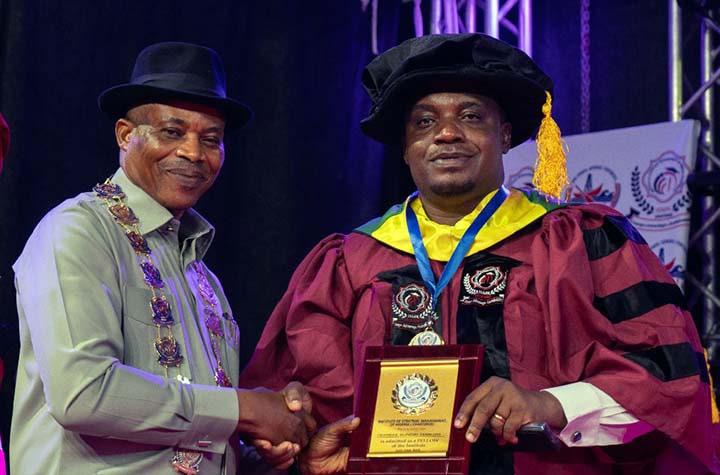
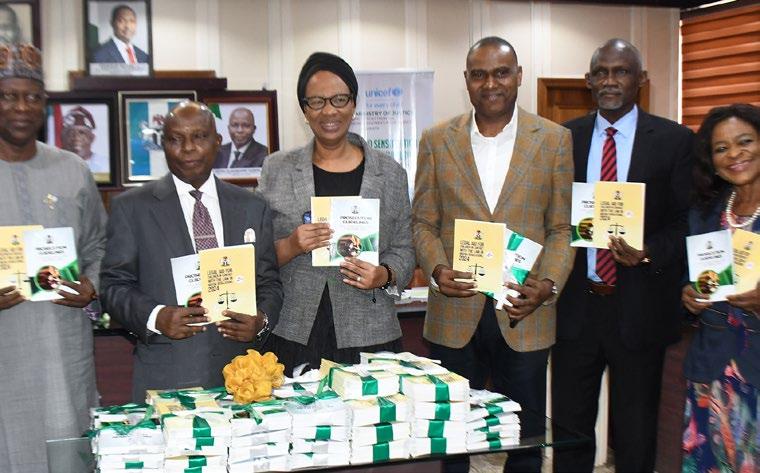
L-R: UNICEF Chief Child Protection, Ibrahim Sesay; Attorney General of the Federation and Minister of Justice, Lateef Fagbemi; Director, Administration of Criminal Justice and Reform Department, Federal Minister of Justice, Mrs Leticia Ayoola-Daniel; Director of Public Prosecution of the Federation, Mohammed Abubakar; Director General of Legal Aid Council, Abubakar Aliyu and Justice Sector Reform Expert, Ugonna Ezekwem, during the unveiling of the Legal Guidelines for Children in Contact With the Law in Nigeria, 2024 and the Prosecution Guidelines for Cases Involving Children in Nigeria, in Abuja on July 29, 2025.



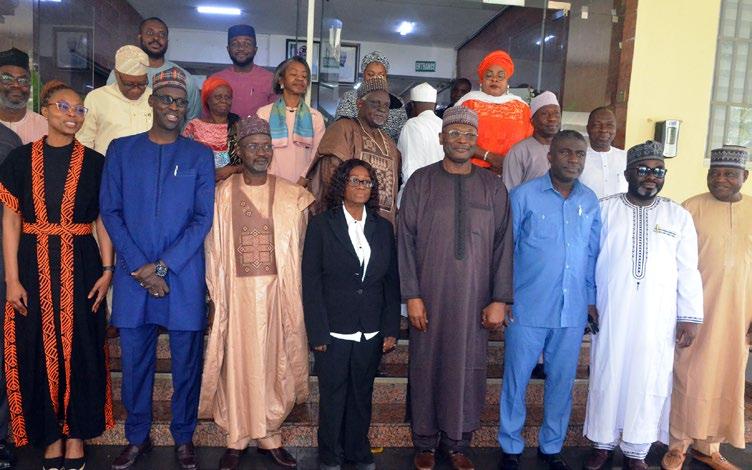




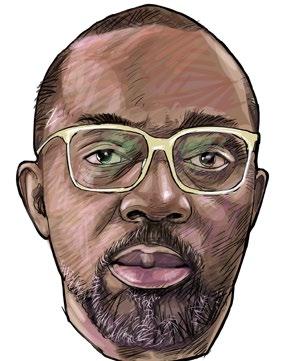

ogannah@thewillnews.com
Kemi Badenoch’s rise to Conservative Party leadership should have been a moment of celebration. As the first Black woman to lead a major British political party, her historic achievement deserved recognition. Instead, her persistent attacks on Nigeria, the country where she spent her formative years, have overshadowed this milestone and created unnecessary diplomatic tensions that threaten both her party’s electoral prospects and Britain’s international relationships.
The Conservative leader, born Olukemi Olufunto Adegoke in Wimbledon to Nigerian parents, lived in Lagos until age 16 before returning to Britain for her education. Her father worked as a doctor, her mother as a physiology lecturer at the University of Lagos. Economic instability and political uncertainty in 1990s Nigeria drove the family’s decision to send her back to the UK, where she studied computer systems engineering at Sussex University and law at Birkbeck before joining the Conservatives in 2005. Her subsequent rise through party ranks culminated in November 2024 when she defeated Robert Jenrick in the leadership contest, marking a significant breakthrough in British political representation.
Since becoming party leader, however, Badenoch has repeatedly criticised Nigeria in ways that go beyond legitimate policy critique. She has described growing up in “fear and insecurity” due to corruption and poor infrastructure, recounting incidents like Nigerian police stealing from her brother to illustrate systemic problems. While such experiences deserve acknowledgment, her broader characterisations have crossed into territory that many find troubling.
More problematically, she told media outlets that she identifies as “ethnic Yoruba rather than Nigerian” and described northern Nigerians as “ethnic enemies” in reference to Boko Haram’s activities in the region. These comments represent a dangerous oversimplification of Nigeria’s complex ethnic and religious landscape, reducing an entire region to its most extreme elements. The statement particularly stings given that many northern Nigerians have suffered tremendously from Boko Haram’s terrorism and continue fighting against extremist ideologies. These remarks provoked a sharp response from Nigeria’s Vice President Kashim Shettima, who suggested Badenoch could “remove the Kemi from her name” if she felt no pride in Nigeria. He contrasted her approach with former Prime Minister Rishi Sunak, who never disparaged India despite facing similar political pressures from nationalist elements within the Conservative Party. Shettima’s comments reflect broader Nigerian sentiment that Badenoch has betrayed her heritage for political convenience.
The political calculations behind Badenoch’s rhetoric seem clear enough. By distancing herself from Nigeria while emphasising British values, she appeals to nationalist elements within her party who view immigration and multiculturalism with suspicion. Her leadership campaign explicitly positioned her as a critic of

“left-wing nonsense,” and her Nigeria comments fit this narrative of unwavering patriotism. Following the Conservatives’ devastating 2024 election defeat, the party’s remaining membership skews older, whiter and more socially conservative than the broader electorate, making such positioning strategically understandable if ultimately shortsighted.
Yet this strategy carries serious costs that extend far beyond party politics. Nigeria remains Britain’s largest trading partner in Africa, with annual trade worth over £5 billion spanning energy, telecommunications and financial services. The relationship encompasses significant educational exchanges, with thousands of Nigerian students contributing to British universities, while UK institutions maintain campuses in Lagos and Abuja. Nigeria’s diaspora of over 200,000 people contributes significantly to Britain’s economy and culture, from healthcare professionals in the NHS to entrepreneurs building successful businesses.
Badenoch’s refusal to engage with Nigerian outreach efforts, as reported by diaspora commission chair Abike Dabiri-Erewa, signals troubling disinterest in nurturing these valuable relationships. Dabiri-Erewa noted multiple attempts to connect with the Conservative leader went unanswered, contrasting sharply with Britain’s stated commitment to strengthening Commonwealth partnerships. Such diplomatic snubs risk undermining cooperation on shared challenges, including climate change, regional security and economic development.
Her comments also risk practical harm to ordinary Nigerians
seeking opportunities in Britain. Home Office data shows over 40 percent of Nigerian student visa applications were rejected in 2023, already creating significant barriers for academic exchange. When the Conservative Party leader characterises Nigeria as fundamentally corrupt and dysfunctional, such rhetoric can reinforce negative stereotypes among immigration officials, employers and educational institutions. Her false claim during a CNN interview that Nigerian women cannot pass citizenship to their children, contradicted by Section 25(1)(c) of Nigeria’s constitution, further muddies public understanding while spreading misinformation about Nigerian law.
The electoral implications prove equally concerning for Conservative prospects. Only 6 percent of Black Britons supported the party in 2024, according to YouGov polling, representing a catastrophic failure to connect with diverse communities that increasingly shape electoral outcomes in key constituencies. Badenoch’s remarks cater to white nationalists while alienating potential supporters from minority communities who might otherwise consider Conservative economic policies. Her reference to “ethnic enemies” particularly risks inflaming tensions in diverse constituencies where Conservative recovery depends on building broader coalitions beyond their traditional base.
Several Nigerian leaders have offered more constructive approaches that acknowledge legitimate concerns while maintaining dignity and respect. Bishop Matthew Hassan Kukah acknowledged Nigeria’s corruption problems while urging Badenoch to show more “tact” and highlight the country’s cultural achievements, technological innovations and democratic progress. Such nuanced commentary recognises genuine challenges without resorting to wholesale condemnation that obscures Nigeria’s complexity and potential.
Badenoch’s position offers unprecedented opportunities for bridgebuilding rather than division. Her dual heritage could strengthen UK-Nigeria relations through advocacy for fair immigration policies, expanded educational exchanges and innovative cultural partnerships. Engaging meaningfully with diaspora communities would demonstrate inclusive leadership while potentially rebuilding Conservative support among minority voters who share many traditional conservative values around family, enterprise, and personal responsibility.
The path forward requires recognising that political expediency and diplomatic wisdom need not conflict. Badenoch can maintain her conservative credentials without alienating Nigeria or its diaspora. By shifting toward constructive engagement while honestly addressing challenges facing both countries, she could fulfil her historic role while advancing British interests and Nigerian aspirations. The choice remains hers: continue divisive rhetoric serving narrow political purposes or embrace the transformative leadership potential her unprecedented position offers. Britain and Nigeria would both benefit from the latter approach. It will do her a world of good to cease these constant attacks on Nigerian state and its citizens.
Badenoch’s remarks cater to white nationalists while alienating potential supporters from minority communities who might otherwise consider Conservative economic policies